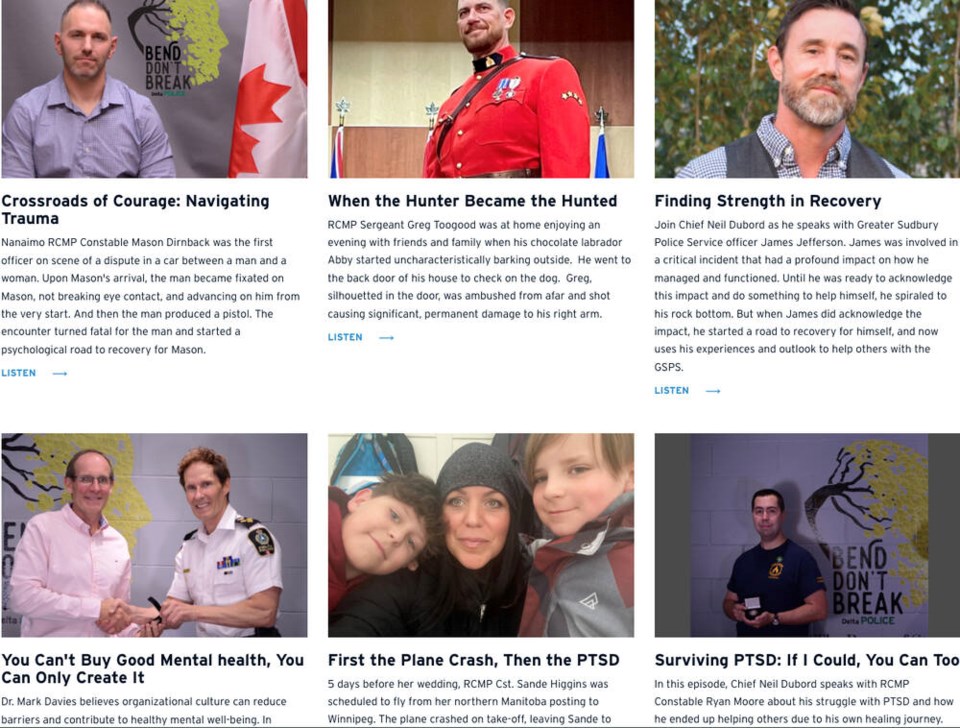Delta Police’s tales of tragedy, hope and heroism that have been shared via audio podcasts have now moved to video.
Since 2018, police officers, initially from Delta, then soon after, first responders from around the continent, have told their stories on the Bend Don’t Break podcasts about getting through the tough times faced on the job, under the precept that people can go through trauma and survive and get on with their lives, and bend but not break.
Doing so encourages other officers, firefighters, paramedics, or frontline care workers that there is a way through trauma.
The half-hour productions allow police to share their stories about the stark realities of post-traumatic stress disorder, mental health, well-being, addictions, and family/relationship breakdown, DPD’s website explains.
Earlier this year, instead of making just podcasts, the medium was switched to videos.
That format holds attention longer, while reach has almost doubled per episode, said A/Insp. James Sandberg, public affairs manager for DPD, who produces the videos.
“We’re supporting officers internally, that’s our focus, but the reality is, we’re not just supporting the officers, we’re supporting the family, the friends,” Sandberg said.
Initially, six years ago, a constable suggested that DPD create a podcast about one officer’s experience. That was followed by another half a dozen officers telling their stories.
Police Chief Neil Dubord then expanded the concept to regular productions of about once a month. That has now increased to twice a month, in video, shared worldwide via social media, with Dubord still hosting the videos and doing pre-interviews.
“We started it small internally, and it grew very quickly in terms of who was reaching out to participate in our podcast,” said Sandberg.
Now, once, or twice a week, first responders from around North America, are contacting the department offering to share their stories
Since 2018, after 62 podcasts, with no promotion, there have been more than 112,000 downloads.
“As long as our numbers are still showing that there’s value, we’ll continue,” Sandberg said.
He said that “the power of story,” will tell other officers they’re not alone if they’re struggling and reduces the stigma against seeking help, while also humanizing the police, which allows other people to connect.
The production is listed as one of the top policing and law enforcement podcasts.
Sandberg said the feedback has been great and that the goal is to get agencies talking and push employee wellness to the forefront.
“At the end of the day, the whole purpose … the word is resilience,” Sandberg said.
“We are trying to build resilience. We are trying to make our people stronger, our people healthier, give our people another tool to deal with their emotional grief.”



